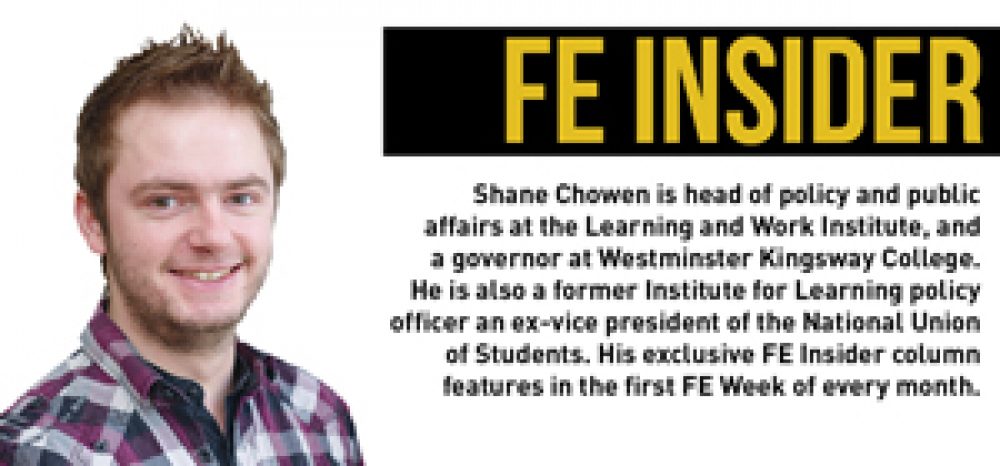Shane Chowen explains why he thinks Lord Sainsbury’s review of technical and professional education should avoid old solutions to new challenges.
If FE Week’s timings are correct, this ought to be my penultimate column before the publication of Lord Sainsbury’s review and the government’s ‘continuing revolution’ of technical and professional education.
I can’t be the only one who is struggling with this metaphor.
Ideally, if you’re going to have a revolution, you want some really clear demands and, most importantly, some kind of utopian goal for the people to get behind.
Leaders have just cause to hold the government’s feet to the fire when it comes to clarity
If your revolution just goes on and on and on, with a confusing message and no end in sight, it’s probably the white flag rather than the red one you need to be reaching for.
If we really are about to see an end to mixed academic and vocational provision post-16, which I think is unlikely, then I would consider that more orthodox thinking than revolutionary.
Saying that, you can see how such a move could be justified.
The prime minister and skills minister have made very clear their shared vision for a future, where every young person goes to a university or does an apprenticeship.
Unrefined, that looks like a competing choice between vocational and academic.
Lord Sainsbury’s review has been tasked with putting forward a technical and professional education system that rivals the best in the world.
Reintroducing some rigid structures which pit academic and vocational as polar opposites would not mirror the best in the world.
Remember John Hayes? In 2010, the then-skills minister said in a speech that “the line between further and higher education should be a permeable membrane, not an iron curtain”. Nobody wants iron curtains.
Instead, I think we will see a new vision set by the Sainsbury Review, with some principles for reform, and a fairly long lead-in time, the year 2025 maybe, for targets and reforms to be met and completed.
On face value, the idea that there will be 15 ‘high-status and clear’ routes in and up some groupings of technical and professional careers could be welcome.
In particular, it would be great to see them focus on sectors/careers which currently don’t benefit from well-known undergraduate routes and where there will be good opportunities accessible to people who don’t live near a Jaguar Land Rover, Rolls Royce or BT plant.
There are some examples of similar set-ups across Europe — where career routes can be mapped out through intermediate up to higher-level training spanning vocational and academic learning against national occupational standards.
However, it is worth noting that Alison Wolf, who is advising the Sainsbury Review, was very clear in her 2011 review of vocational education that all non-academic programmes of study for 16- to 18-year-olds “should be governed by a set of principles relating primarily to content, general structure, assessment arrangements and contact time”.
This could suggest the kind of TPE frameworks Lord Sainsbury will recommend. Professor Wolf also recommended against study programmes which were “entirely occupational”.
The government’s response to the Sainsbury Review, which I’d expect at the same time as the report, will hopefully draw parallels between what is hoped to be achieved through reforms to TPE and parallel agendas dominating learning and skills at present.
Provider leaders definitely have just cause to hold the government’s feet to the fire when it comes to clarity over what they want from the sector in return for, albeit diminishing, taxpayer funding.
Key questions should for example include, will Sainsbury’s review be a continuation of moves to more freedoms and flexibilities, or will it add further complexity to the market?
Also, how can TPE routes help open careers to people without traditional social and financial capital usually expected of people in certain professional careers?
Finally, will TPE training be limited to institutes of technical excellence following area reviews?
You can start to see how, from the government’s perspective, this could all piece together. But for the benefit of leaders across the sector, I really hope I am right about the extended lead-in time before any reforms.
We also learned in the Queen’s speech that there will be a life chances strategy later this year. I’d expect part of that to be about the role of TPE, FE, and higher education in helping people overcome barriers to better opportunities throughout their lives.



Your thoughts